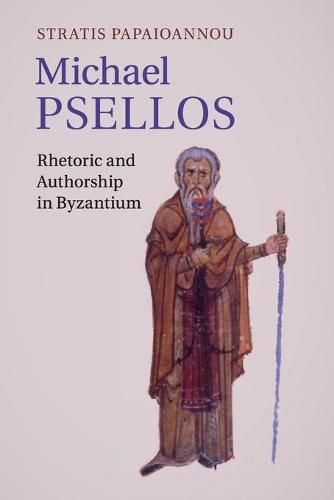Readings Newsletter
Become a Readings Member to make your shopping experience even easier.
Sign in or sign up for free!
You’re not far away from qualifying for FREE standard shipping within Australia
You’ve qualified for FREE standard shipping within Australia
The cart is loading…






This book explores Michael Psellos’ place in the history of Greek rhetoric and self-representation and his impact on the development of Byzantine literature. Avoiding the modern dilemma that vacillates between Psellos the pompous rhetorician and Psellos the ingenious thinker, Professor Papaioannou unravels the often misunderstood Byzantine rhetoric, its rich discursive tradition and the social fabric of elite Constantinopolitan culture which rhetoric addressed. The book offers close readings of Psellos’ personal letters, speeches, lectures and historiographical narratives, and analysis of other early Byzantine and classical models of authorship in Byzantine book culture, such as Gregory of Nazianzos, Synesios of Cyrene, Hermogenes and Plato. It also details Psellos’ innovative attention to authorial creativity, performative mimesis and the aesthetics of the self. Simultaneously, it traces within Byzantium complex expressions of emotion and gender, notions of authorship and subjectivity, and theories of fictionality and literature, challenging the common fallacy that these are modern inventions.
$9.00 standard shipping within Australia
FREE standard shipping within Australia for orders over $100.00
Express & International shipping calculated at checkout
This book explores Michael Psellos’ place in the history of Greek rhetoric and self-representation and his impact on the development of Byzantine literature. Avoiding the modern dilemma that vacillates between Psellos the pompous rhetorician and Psellos the ingenious thinker, Professor Papaioannou unravels the often misunderstood Byzantine rhetoric, its rich discursive tradition and the social fabric of elite Constantinopolitan culture which rhetoric addressed. The book offers close readings of Psellos’ personal letters, speeches, lectures and historiographical narratives, and analysis of other early Byzantine and classical models of authorship in Byzantine book culture, such as Gregory of Nazianzos, Synesios of Cyrene, Hermogenes and Plato. It also details Psellos’ innovative attention to authorial creativity, performative mimesis and the aesthetics of the self. Simultaneously, it traces within Byzantium complex expressions of emotion and gender, notions of authorship and subjectivity, and theories of fictionality and literature, challenging the common fallacy that these are modern inventions.